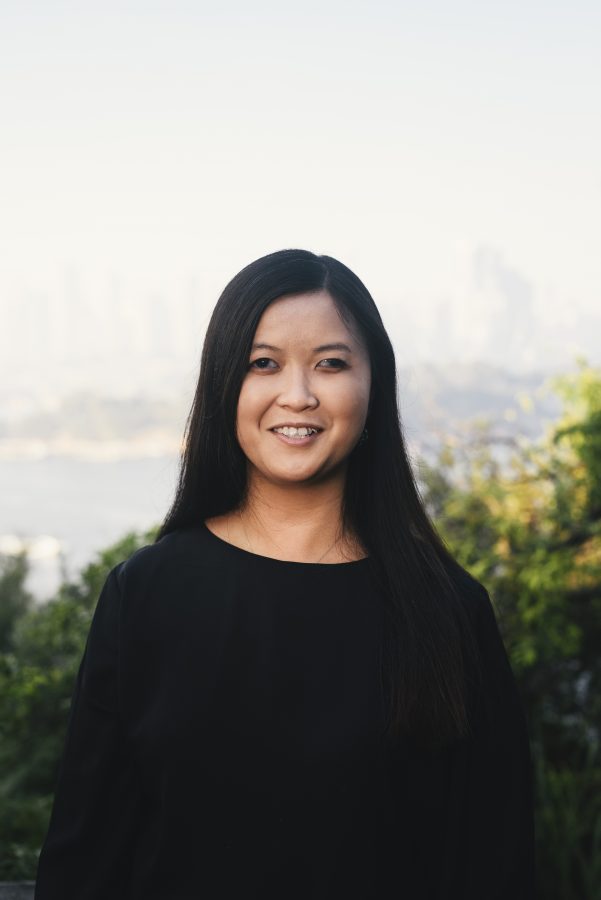Life’s a song for Ria
Singer, ABC Classic Digital Producer and bushwalking enthusiast Ria is passionate about music.
As a young girl growing up in Indonesia, Ria’s parents introduced her to the piano and even bought her one. She soon found out that she naturally gravitated towards singing.
‘For me being able to sing is one of the ways I can express myself and I love to sing with other people,’ Ria says.
Ria is now in her mid-30s and sings with the Sydney Chamber Choir.
But singing in a choir also comes with some challenges for Ria. She has congenital Glaucoma and is blind.
‘I had a bit of vision until I was about 5 years old, then I lost most of my sight,’ Ria says.
‘I didn’t really feel like it was a big deal at the time, and I wasn’t particularly sad; I thought, ”Oh yeah, that happened, now what?”
‘It was a lot harder on my parents than it was on me to be honest.’
‘Looking back, I think I was incredibly lucky I lost my sight at a peak age for brain plasticity, and my vision loss didn’t stop me from pursuing my dream.’

Ria is trained as a classical singer, and she takes pride in singing as part of Sydney Chamber Choir. She recalls an incident with her retired guide dog Max when he discovered he had a voice, singing along with the choir during a rehearsal when she just joined.
He broke out in howling song at the back of the hall.
‘I was so terrified that the conductor would tap me on the shoulder and say, ‘Hey that’s super inappropriate, your dog has interrupted the rehearsal,’ and I’d be asked to leave the choir.
‘But everyone in that room found the whole situation pretty hilarious and I knew then that these were my people’
There is a focus in Sydney Chamber Choir on new music.
‘We do music that’s being composed by people as we speak; composers in Sydney, young composers who are still honing their ideas.
‘I get to know Australia through some of these songs, and it has been exciting to sing them for the world, sometimes for the first time. I also get to record them.’
Ria reads braille music for the choir.
‘I have quite a lot of score collections of music on paper,’ Ria says.
‘I also have the electronic versions on me most of the time when I am singing. Reading them can be quite challenging at times.
‘In print musical notation the notes go up and down and the different shapes mean different things.
‘In braille music, it goes from left to right; you still get different shapes of how the dots are arranged and that also means different things.
‘You have to put a lot of the pieces of the puzzle together in your head rather than on the page.’
Ria has some ‘sound’ advice for anyone with disability wanting to try their hand at music.
‘Start with what brings you joy,’ Ria says.
‘There are just incredibly diverse kinds of music-making and I’m of the opinion that music is a universal right.
‘Try as many instruments as possible and try to sing because if you’ve got a voice most of the time you can sing.’
Image Credits: Katje Ford and Nick Gilbert
